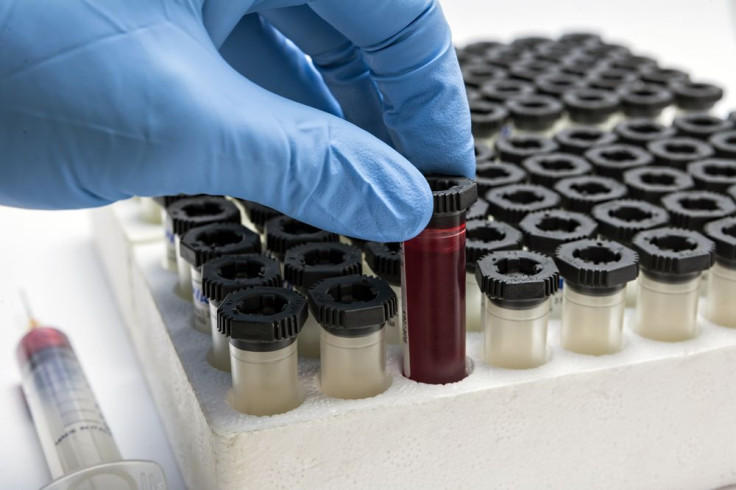Blood Type And Brain Health: Type O Protects Against Cognitive Decline Via Gray Matter

All blood tends to look the same, yet we each fall into one of four types: A, B, AB, or O. It's crucial to know your type for blood transfusions to protect the immune system, but they can also reveal a wealth of information when it comes to your health. According to a recent study published in the journal Brain Research Bulletin, our blood type can influence the development of the nervous system and predict how our brain will age.
Aging is known to cause changes to the brain size, vasculature, and cognition, according to the National Institute on Aging. As we age, the brain shrinks and goes through changes at all levels, from molecules to morphology. The reduction of gray matter volumes — mostly composed of neuronal cell bodies — is normally seen in the brain with age. This serves to help us process information in the brain.
Research fellow Matteo De Marco and Professor Annalena Venneri, from the Sheffield University's Department of Neuroscience, believe this gray matter difference and the risk for cognitive decline may be influenced by the different blood types we possess. In an effort to observe the volumetric differences in gray matter between “O” and non-“O” adults and the risk of cognitive decline, researchers analyzed 189 Magnetic Resonance Imaging (MRI) scans from healthy participants. The volumes of gray matter within the brain were calculated and compared with between different blood types.
The findings revealed smaller volumes of gray matter are associated with non-“O” blood types. Those with A, B, or AB blood types had smaller gray matter volumes in the temporal and limbic regions of the brain, including the left hippocampus. This area is known to be one of the earliest parts of the brain affected by Alzheimer’s disease.
“What we know today is that a significant difference in volumes exists, and our findings confirm established clinical observations. In all likelihood, the biology of blood types influences the development of the nervous system. We now have to understand how and why this occurs,” said Professor Annalena Venneri in the news release.
Similarly, a 2014 study published in the journal Neurology found those with the rare AB blood type, found in about four percent of the U.S. population, have a higher risk of cognitive problems as they age compared to other blood types. Those with AB blood were 82 percent more likely to develop the thinking and memory problems that can lead to dementia. Moreover, people with AB blood had a higher average level of factor 8 — a protein that helps blood to clot — than those with other blood types. High levels of factor 8 have been linked to a higher risk of cognitive impairment and dementia.
There are non-genetic risk factors associated with faster cognitive declines that we can control over with a healthy diet and exercise. High blood pressure, diabetes, cigarette smoking, and being overweight or obese in middle life are all associated with faster declines in brain volume, according to a 2011 study published in the journal Neurology.
Those with high blood pressure were more quick to develop white matter change, or areas in the blood vessels in the brain that are damaged compared to those with normal blood pressure. Diabetics had a faster shrinkage in the hippocampus, while smokers had more rapid overall brain shrinkage than nonsmokers and also showed faster changes in white matter. Lastly, those who are overweight or obese had the fastest rates of decrease in brain volume, and decline in executive function.
However, there are ways to help gray matter grow, despite your predisposition to these risk factors. Meditation could help protect the brain from aging. Although a decline in gray matter is inevitable with older age, meditators are more likely to experience smaller reductions than their non-meditating counterparts, according to recent study. Although the findings don’t prove causality, lifestyle factors and genetic brain differences can also play an influential role in brain aging.
To help our gray matter grow, maybe all we really do need is peace of mind. Ohm.
Sources: De Marco M and Venneri A. ‘O’ blood type is associated with larger grey-matter volumes in the cerebellum. Brain Research Bulletin. 2015.
Alexander K, Cushman M, Gillett S et al. ABO blood type, factor VIII, and incident cognitive impairment in the REGARDS cohort. Neurology. 2014.
Cherbuin N, Kurth F, and Luders E. Forever Young(er): potential age-defying effects of long-term meditation on gray matter atrophy. Frontiers in Psychology. 2015.



























